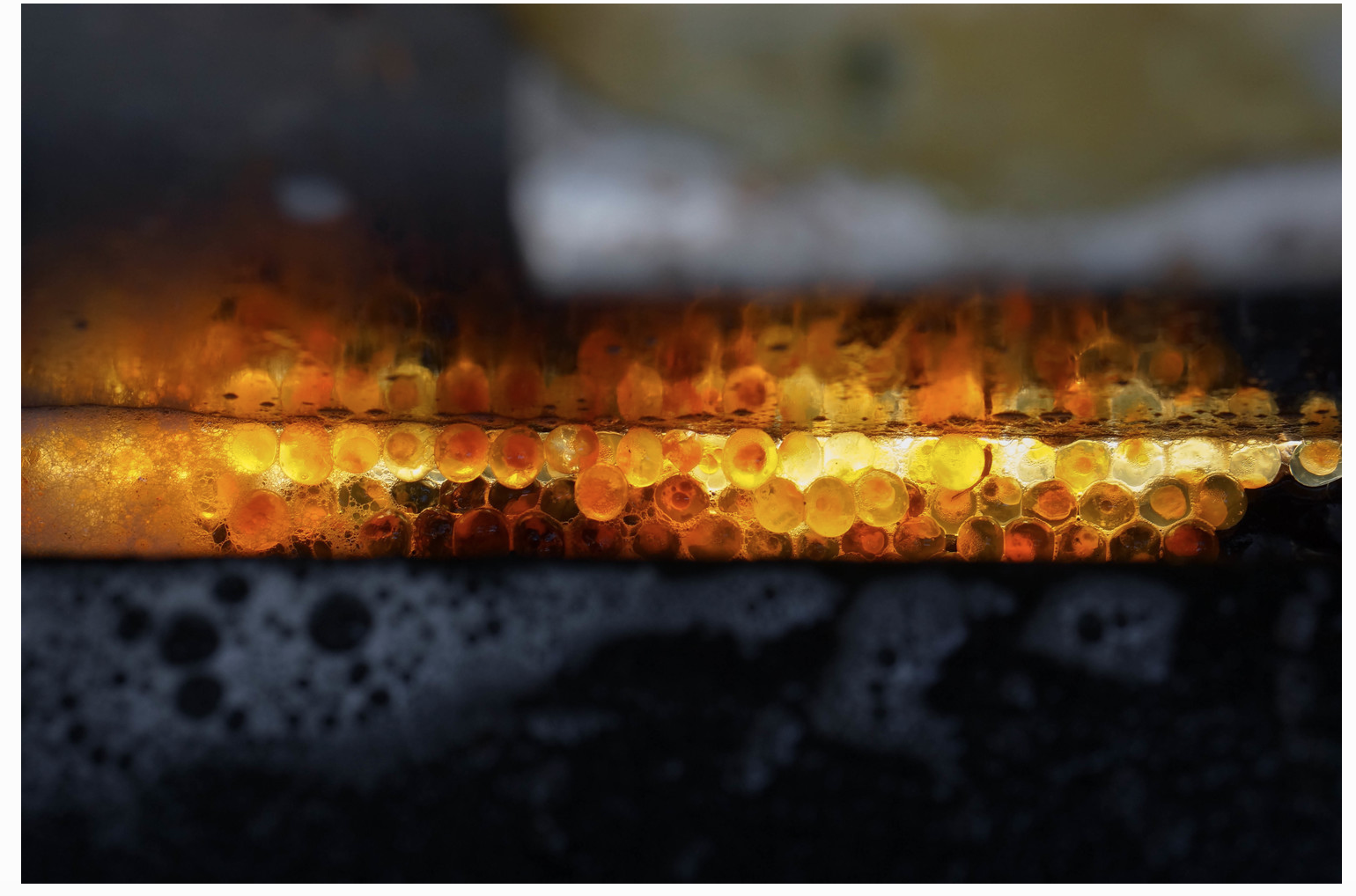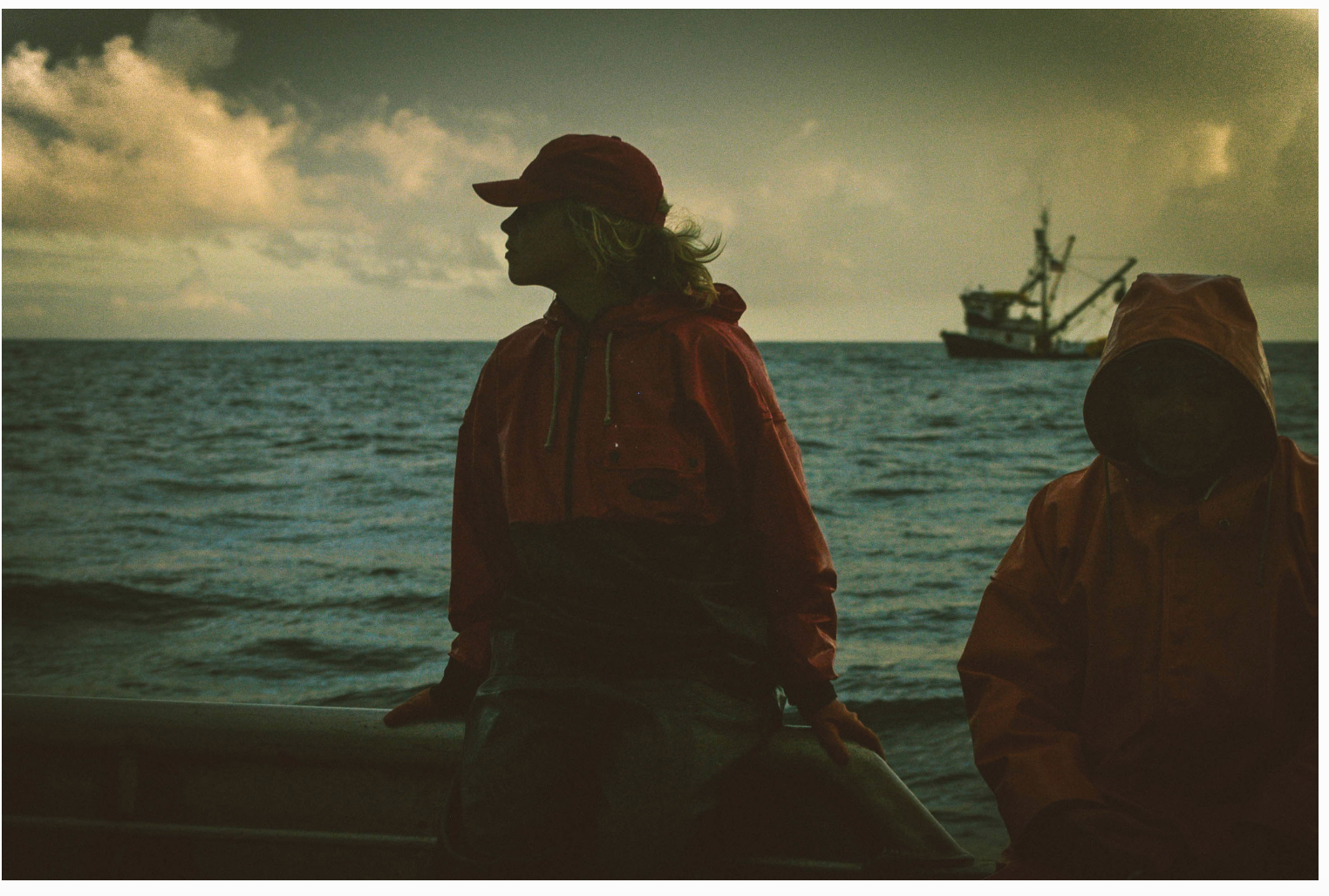DEEP INLET
Late August's mornings were even more ghostly and spectral than before, a true presence of autumn palpable if you allowed yourself to consider the seasons, the subtle changes that had occurred in the taste of the air. The change of the light. The wind blew colder. Morning’s light more reluctant in its coming.
We got weather of a more determinately fall flavor. Billowing white cumulous clouds with grey underbellies on the horizon come in fast, and suddenly the rolling grey caissons in the distance bringing total white out rains, the static boil of the water, the billowing gusts that sent the net into a sail, visibility of the mountains, the land, the surrounding boats, the skiff driver, all dissolved into abstraction. A memory in the squall.
We moved on to Deep Inlet. This is where the season went to die. We fished with 75 other boats. We waited for a set with a 30 boat line up. We'd make one set around ten, then boots off, down for a nap, or sit in the galley and watch two movies back to back.
In our retirement of the season, in our old age in the summer it seemed that we were like the ghost fish that had been coming up in the net. Ready and sensing it was time to die, decomposition already occurring but still inconceivably swimming on.
And now Mutiny. Mutiny touched on before but there's no mutiny like that of the end of August in a season of scarcity. The Skipper’s urgency and desperation to scratch a season, especially that of a first year skipper (with a nightmarish amount of debt) does not fluidly translate to deckhand empathy: rational thoughts of making sets to accumulate fish to acquire money spelled irrational and greedy, insane and improbable and financially irresponsible in the minds of her hands. Running to new areas, gobbling up diesel eats away at our impossibly thin profit margin.
Muttering, outright threats to jump ship. Cigarettes puffed and mean eyes cast towards the top house, the pinnacle from which the decisions come. Never more do I understand how governments topple and rulers are overthrown then when disgruntled minds join and work themselves into frenzy.
Lowest morale was not reached that day two or three weeks prior, the low water mark continued to drop but as touched on in the beginning, somehow it’s never that bad, never quite so bad, I’ve seen worse. I’ve been through worse.
The crew scatters like billiard balls when we dock and then in reverse, a tape in rewind, come zipping back together to meet in the fo’c’sle, and stow ourselves, Dracula-like until the morning when we are roused for another days use. Our 112th day of use.
We fished 2 more days that season. Then one day it was over. I woke up to a blazing beautiful late August morning in Sitka and lay in my bunk, the bunk I had been sleeping in every night for the last three months and grappled with the concept it was over. It was finally over. I was packed and ready, all my books and town clothes double bagged and stowed in the lazarette to be reclaimed once the boat was back in Seattle. I had been given permission by S. to call my season early and fly to Petersburg to longline for halibut with my Dad. Fishing for halibut for two days on the Sue Ann, I made roughly the same amount of money as I did fishing three months on the boat. Later, after the season was over there were stories of boats that never made a profit, of crews that not only did not make a dime but technically owed the fishing operation for food and fuel. There were stories of bills being sent out to crew.
The pink return for the season was roughly half of what it was predicted to be. In the summer of 2015 the National Oceanic and Atmospheric Administration scientists caught record numbers of sun fish, a tropically-inclined fish. Ketchikan experienced its largest plankton bloom in at least 30 years. Auke Lake's out-migrating pink salmon left earlier than they ever had and water temperatures in SE Alaska were a degree to several degrees warmer than normal.
I don't know what is going to happen in this industry. I know that the Department of Fish and Game scientists are concerned, I know there is cause for concern. The 2015 season was predicted to be "above excellent" in its yield. The fish never came.
The question which I find poignant and deeply painful to consider is: where will the Northern species go as the waters warm? What about the way of life in the North, for fishermen and natives? You can talk about the stock market’s ups and downs and international exchange rates forever, but at the end of the day, what about the Northern way of life?
And to scale back, what about the impact of global warming on all the myriad species around the world and the cultures that are so interwoven with them? Shaped by them, inspired by them, reliant on them? The content of this change transcends economics, (although, sadly, this is the only way to interest some parties in a discussion of the changes we'll experience). This is a matter of culture, of heritage, of family and of self.
Back to BOAT LAND




